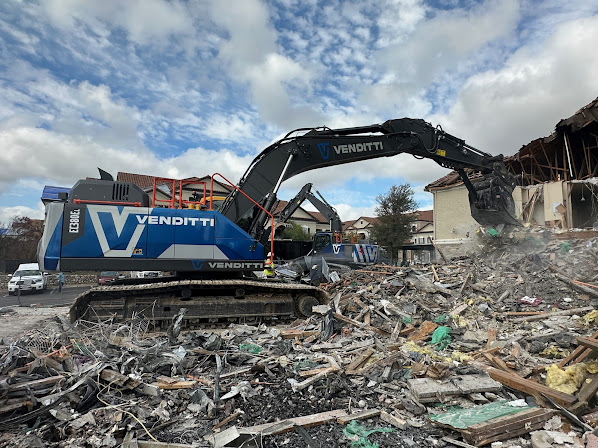Demolition is a crucial aspect of construction and renovation projects, laying the groundwork for new beginnings. Hiring a reputable demolition contractor ensures the job is done efficiently, safely, and within budget. In this guide, we'll explore the essentials of hiring the right demolition contractor in Austin, emphasizing the importance of expertise and professionalism.
Understanding Demolition
Demolition involves the strategic dismantling or destruction of structures to make way for new developments. It encompasses various techniques, including selective, implosion, and deconstruction, tailored to specific project requirements.
Qualities of a Reputable Contractor
Licensing and Certification A reputable contractor should possess the necessary licenses and certifications, ensuring compliance with local regulations and safety standards.
Experience and Expertise Years of experience and specialized expertise demonstrate a contractor's ability to handle diverse demolition projects effectively.
Safety Measures Prioritizing safety is non-negotiable. Look for contractors who implement rigorous safety protocols to protect both workers and the surrounding environment.
Researching Potential Contractors
Online Reviews and Ratings Browse through online platforms to gauge customer reviews and ratings, providing valuable insights into a contractor's reputation and reliability.
Client Testimonials Direct feedback from past clients offers firsthand perspectives on a contractor's performance and professionalism.
Portfolio Assessment Reviewing past projects showcases a contractor's capabilities and versatility in handling different demolition tasks.
Initial Consultation
Importance of On-Site Assessment An on-site assessment allows contractors to evaluate project complexities and devise tailored demolition strategies.
Discussing Project Scope and Requirements Clear communication regarding project objectives and client expectations sets the foundation for a successful collaboration.
Cost Estimation
Transparent Pricing Structure Choose contractors who provide detailed breakdowns of costs, ensuring transparency and accountability throughout the project.
Factors Influencing Cost Estimate Factors such as project size, materials involved, and site accessibility influence the overall cost estimation.
Project Timeline
Understanding the Timeline A realistic timeline sets clear expectations and facilitates efficient project planning and execution.
Flexibility and Adaptability Contractors should demonstrate flexibility in adjusting timelines to accommodate unforeseen challenges or client preferences.
Contractual Agreements
Importance of Detailed Contracts Comprehensive contracts outline project specifics, timelines, costs, and responsibilities, minimizing potential conflicts.
Clarifying Terms and Conditions Ensure all parties involved understand and agree upon contractual terms to prevent misunderstandings or disputes.
Safety Protocols
Occupational Safety Standards Adherence to occupational safety standards and regulations is paramount to ensure a secure work environment.
Insurance Coverage Verify that the contractor carries adequate insurance coverage to mitigate risks associated with potential accidents or damages.
Environmental Considerations
Waste Management Practices Responsible waste disposal and recycling practices minimize environmental impact and promote sustainability.
Environmental Regulations Compliance Compliance with environmental regulations ensures ethical and lawful demolition practices, preserving natural resources.
Communication Channels
Accessibility and Responsiveness Effective communication channels foster transparency and enable prompt resolution of issues or concerns.
Regular Updates and Feedback Contractors should provide regular progress updates and solicit client feedback to maintain alignment throughout the project.
Project Execution
Equipment and Machinery Utilization Utilization of state-of-the-art equipment and machinery enhances efficiency and precision during demolition operations.
Adherence to Demolition Plan Strict adherence to the demolition plan ensures smooth project execution and minimizes disruptions.
Quality Assurance
Inspection and Supervision Routine inspections and supervision guarantee adherence to quality standards and project specifications.
Addressing Client Concerns Responsive resolution of client concerns fosters trust and satisfaction, enhancing the overall project experience.
Conclusion
Hiring a reputable demolition contractor in Austin is paramount to ensuring a successful and stress-free demolition project. By prioritizing expertise, professionalism, and safety, you can embark on your demolition journey with confidence.
FAQs
Do I Need Permits for Demolition Projects? Yes, obtaining the necessary permits is essential to comply with local regulations and ensure legal compliance.
What Safety Measures Should I Look for in a Demolition Contractor? Look for contractors who prioritize safety training, utilize protective gear, and implement proper waste management practices.
How Long Does a Typical Demolition Project Take? The duration of a demolition project varies based on factors such as project size, complexity, and environmental considerations.
What Happens to Demolition Waste? Demolition waste is typically sorted, recycled, or disposed of in compliance with environmental regulations and sustainability practices.
Can I Request Changes to the Demolition Plan Once It's Started? While changes may be possible, they can impact project timelines and costs. It's essential to communicate any changes promptly and assess their feasibility with the contractor.
What Insurance Coverage Should a Demolition Contractor Have? A reputable contractor should carry liability insurance and worker's compensation coverage to protect against potential damages or injuries.

Comments
Post a Comment